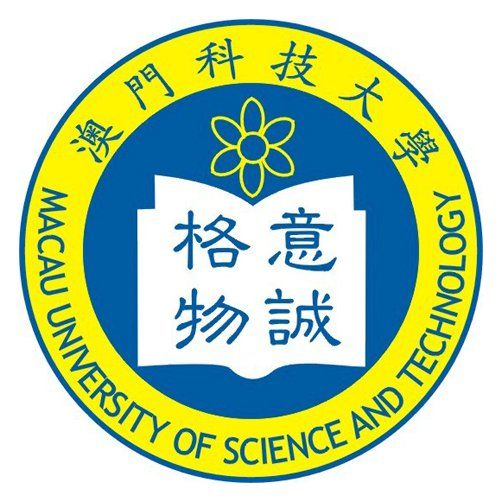预约演示
更新于:2026-02-28
Lycorine
更新于:2026-02-28
概要
基本信息
结构/序列
分子式C16H17NO4 |
InChIKeyXGVJWXAYKUHDOO-DANNLKNASA-N |
CAS号476-28-8 |
关联
100 项与 Lycorine 相关的临床结果
登录后查看更多信息
100 项与 Lycorine 相关的转化医学
登录后查看更多信息
100 项与 Lycorine 相关的专利(医药)
登录后查看更多信息
1,001
项与 Lycorine 相关的文献(医药)2026-04-01·PHYTOMEDICINE
Lycorine improves inflammatory imbalance in diabetic cardiomyopathy by targeting ILF3
Article
作者: Tao, Huanyan ; Liang, Guang ; Bao, Shenjie ; Yuan, Miao ; Zhu, Hong ; Zhang, Jingnan ; Jin, Xuejin ; Zhou, Qian ; Wang, Yi ; Xu, Zheng ; Chattipakorn, Nipon
BACKGROUND:
Diabetic cardiomyopathy (DCM) is characterized by chronic low-grade inflammation and metabolic disturbances, leading to progressive cardiac dysfunction. Lycorine (LY), a complex tetracyclic pyrrolo[de]phenanthridine alkaloid from the Amaryllidaceae family, has shown potential anti-inflammatory effects, but its role in DCM pathogenesis remains unexplored.
PURPOSE:
This study investigated the cardioprotective effect of LY in DCM and its underlying molecular mechanisms.
METHODS:
We employed both in vitro (high glucose/palmitic acid-treated cardiomyocytes) and in vivo (streptozotocin-induced diabetic mice) models to investigate LY's cardioprotective effects. Liquid chromatography-tandem mass spectrometry, molecular docking, surface plasmon resonance binding assay, cellular thermal shift assay, and RNA interference approaches were utilized to identify the key target and mechanistic pathways.
RESULTS:
In vitro and in vivo models of DCM revealed that LY significantly attenuated cardiac inflammation. Mechanistically, liquid chromatography-tandem mass spectrometry analysis revealed that LY targeted interleukin enhancer-binding factor 3 (ILF3), a critical regulator of inflammatory responses. Notably, surface plasmon resonance and cellular thermal shift assay data validated a direct interaction between LY and ILF3. By interacting with ILF3, LY enhanced nuclear factor erythroid 2-related factor 2-mediated anti-inflammatory responses while suppressing NF-κB-driven pro-inflammatory signaling, thereby restoring inflammatory homeostasis and reducing myocardial injury. Furthermore, ILF3 knockdown mimicked the protective effects of LY, and ILF3 activity was essential for LY's cardioprotective effects.
CONCLUSION:
These findings suggest that LY ameliorates DCM by modulating ILF3-dependent nuclear factor erythroid 2-related factor 2 and NF-κB crosstalk to restore inflammatory balance, suggesting its potential as a novel therapeutic agent for diabetic cardiovascular complications.
2026-02-01·PEST MANAGEMENT SCIENCE
Antifungal mechanisms of amaryllidaceous alkaloids lycorine and narciclasine against the rice blast fungus
Magnaporthe oryzae
Article
作者: Xu, Shu ; Tian, Mei ; Wang, Ruyuan ; Chen, Yu ; Chen, Jin ; Feng, Xu ; Wang, Qizhi ; Qiao, Siwei ; Xu, Xiaoxiao ; Liu, Chenyang
Abstract:
BACKGROUND:
Rice blast, a destructive fungal disease caused by
Magnaporthe oryzae
, severely impacts rice production worldwide. The increasing resistance of
M. oryzae
to multiple commercial fungicides has heightened the need for novel control agents. In previous studies, we identified two amaryllidaceous alkaloids, lycorine (LYC) and narciclasine (NAR), as potent antifungal agents against
M. oryzae
. However, their antifungal mechanisms remain poorly understood.
RESULTS:
In this study, RNA sequencing was used to examine the transcriptome of
M. oryzae
, followed by validation via quantitative real‐time polymerase chain reaction analysis. The results suggested that both
LYC
and
NAR
greatly inhibited lipid metabolism and melanin metabolism in
M. oryzae
. In addition,
LYC
suppressed carbohydrate metabolism, whereas
NAR
interfered with mitosis.
Liquid chromatography
–
mass spectrometry
analysis further confirmed the suppression of lipid metabolism by both compounds, particularly the reduction in phosphatidylcholine content. Physiological and biochemical assays demonstrated that
LYC
and
NAR
significantly reduced melanin production and altered membrane permeability.
LYC
also evidently lowered carbohydrate and pyruvic acid levels, whereas
NAR
reduced both
RNA
and protein contents.
CONCLUSION:
In conclusion, LYC and NAR can both inhibit lipid metabolism and melanin synthesis of
M. oryzae
, with LYC also impacting carbohydrate metabolism and NAR disrupting mitosis. These findings provide a scientific basis for the development and utilization of LYC and NAR as novel control agents against rice blast. © 2025 Society of Chemical Industry.
2026-01-01·POULTRY SCIENCE
Establishment of a stable replicon cell line of Tembusu virus (TMUV) for high-throughput antiviral screening
Article
作者: Zhang, Shan ; Song, Jing Wei ; Mu, Peng Fei ; Liu, Lan Hao ; Nie, Pin ; Yuan, Heng Xing ; Fu, Xiao Qing
Tembusu virus (TMUV), a member in the family Flaviviridae, induces egg-drop syndrome and fatal encephalitis in ducks, and thus threatens severely poultry industry. The development of preventive strategies against TMUV infection may contribute significantly to the viral disease control, but specific therapeutics is not currently available for TMUV infection. In this study, a novel TMUV replicon system was constructed in two cell lines by replacing viral structural genes with a Gaussia luciferase (Gluc) reporter and a blasticidin (BSD) resistance marker. Through continuous BSD selection, a stable Vero cell line harboring self-replicating TMUV RNA was established with replication fidelity over at least ten serial passages. Further whole-genome sequencing revealed that two adaptive mutations (C3108T and G5534A), causing NS1L217L and NS3M315I substitutions, occurred in passages, which resulted in synergistically enhanced TMUV RNA replication in Vero cells. Using the Vero-TMUV replicon system, three compounds, Panobinostat, Floxuridine, and 5-Fluorouracil were screened out as promising antiviral candidates, along with the known flavivirus inhibitor, Lycorine. The development of this stable replicon cell line for TMUV cluster 3 may provide a versatile platform for screening antiviral drugs and also for understanding the host-virus interaction.
100 项与 Lycorine 相关的药物交易
登录后查看更多信息
研发状态
10 条进展最快的记录, 后查看更多信息
登录
| 适应症 | 最高研发状态 | 国家/地区 | 公司 | 日期 |
|---|---|---|---|---|
| 缺血性卒中 | 临床前 | 中国 | 2025-03-09 |
登录后查看更多信息
临床结果
临床结果
适应症
分期
评价
查看全部结果
| 研究 | 分期 | 人群特征 | 评价人数 | 分组 | 结果 | 评价 | 发布日期 |
|---|
No Data | |||||||
登录后查看更多信息
转化医学
使用我们的转化医学数据加速您的研究。
登录
或

药物交易
使用我们的药物交易数据加速您的研究。
登录
或

核心专利
使用我们的核心专利数据促进您的研究。
登录
或

临床分析
紧跟全球注册中心的最新临床试验。
登录
或

批准
利用最新的监管批准信息加速您的研究。
登录
或

特殊审评
只需点击几下即可了解关键药物信息。
登录
或

生物医药百科问答
全新生物医药AI Agent 覆盖科研全链路,让突破性发现快人一步
立即开始免费试用!
智慧芽新药情报库是智慧芽专为生命科学人士构建的基于AI的创新药情报平台,助您全方位提升您的研发与决策效率。
立即开始数据试用!
智慧芽新药库数据也通过智慧芽数据服务平台,以API或者数据包形式对外开放,助您更加充分利用智慧芽新药情报信息。
生物序列数据库
生物药研发创新
免费使用
化学结构数据库
小分子化药研发创新
免费使用
